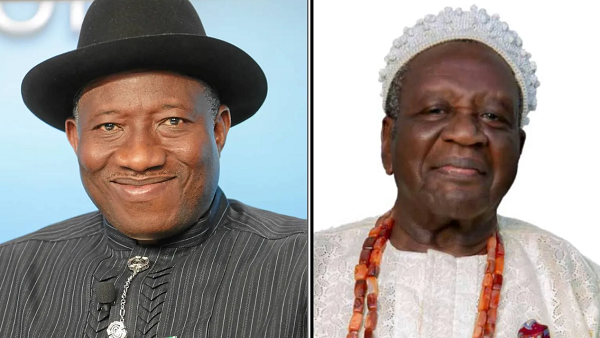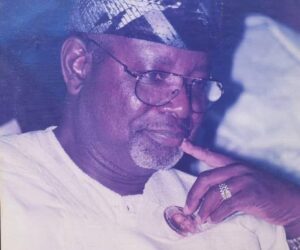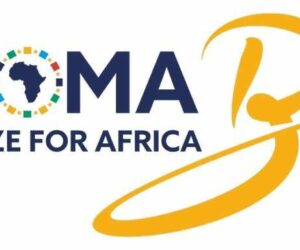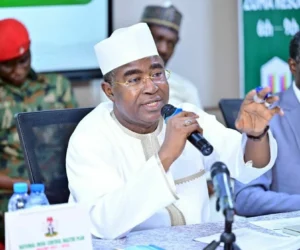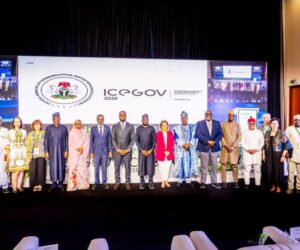Former President Goodluck Jonathan has described Victor Attah, former governor of Akwa Ibom state, as a very unique person, whose resilience and persistence led to the abolition of the onshore-offshore dichotomy.
Jonathan, who was Chairman at the public presentation of the book “Attah: Architect of A New Democratic Dawn”, spoke about Attah’s life and stated that younger generations of Akwa Ibom citizens may not know why they are where they are today, especially in terms of revenue allocation from the central government, and those who fought for it.
He noted that while working as an Assistant Director at the Oil Mineral Producing Areas Development Commission (OMPADEC), he realised that Akwa Ibom State was entitled to only 1% of the federal government revenue.
According to him, although through some external arrangements, the government had tried to compensate the state by appointing its indigenes into key positions, the actual allocation of money was insignificant.
Read also: Only Jonathan’s enemies will want him to join 2027 presidential race – Oshiomhole
“Luckily, in 1999, I also became Deputy Governor of Bayelsa State. And Victor Attah was one of the lions who fought for the abolition of the onshore–offshore dichotomy.
“His colleague, my good friend Governor Peter Odili, is here. Yes, other governors — including the late DSP Alamieyeseigha — also fought, but Victor Attah was the champion. He was number one.”
He noted that even “after the Supreme Court delivered a judgment against him, he did not rest. He was not afraid of being accused of contempt. If you read pages 18 and 19 of the book, you will understand what I mean.”
“He said, and I quote: “This judgment — that is, the onshore–offshore dichotomy — will remain to the eternal shame of the Supreme Court of Nigeria unless it assumes the courage in future to reverse itself.”
“This was after the Supreme Court had ruled that offshore oil belongs to the Federal Government and that states were entitled only to onshore revenue.”
Former President Jonathan stated that “If that judgment had been allowed to stand, the development we see in Akwa Ibom today would be less than one percent of what it is.
“Today, the states with the offshore oil wells, which are now enjoying the benefits, owe a debt of gratitude to Victor Attah.”
He described Victor Attah as “a visionary leader, an accomplished professional, and a remarkable teacher — on the occasion of his 87th birthday.
“At 87, Obong Attah stands as a testament to what it means to live a life of purpose. His contributions to the evolution of modern Akwa Ibom State remain indelible. As governor, he dreamt boldly, planned meticulously, and executed decisively. The foundation he laid in infrastructure, urban development, economic strategy, and institutional reforms continues to bear fruit decades after he left office.
“Obong Attah demonstrated that leadership is not about occupying an office but about transforming the lives and aspirations of one’s people.
“Beyond politics, he is a man of character. His integrity, his sense of duty, and his mentorship have inspired many and shaped leaders across generations.”
For Jonathan, the “biography presented today, ‘Architect of a New Dawn’, captures his invaluable contributions. It is not just the story of an individual, but a chronicle of courage and visionary leadership.
“As we honour him today, may we also draw inspiration from his journey — a reminder that leadership is most meaningful when it strengthens communities, uplifts people, and lays a solid foundation for future generations.”
Victor Attah, while speaking on his experience as a politician, recalled how he was wrongly framed by the Economic and Financial Crimes Commission (EFCC), as the owner of Sandy Lane hotel in Barbados.
The former Governor recalled how he went to Barbados, “secured a job with Roberts and Watts—the firm that developed the Sandy Lane estate and the Sandy Lane Hotel. The first thing they assigned to me was a 25-room extension to the Sandy Lane Hotel.”
“Now, those of you who read Forbes or Fortune magazines will know Sandy Lane. It used to be advertised inside those magazines. It was one of the very, very few seven-star hotels in the world at the time. So I felt very proud that I had added 25 rooms to that hotel.
“In 2002. I was governor of Akwa Ibom State. I took my wife and two children to Barbados on holiday, as I used to do frequently. Being governor, the High Commissioner in Trinidad came to welcome me—with all the royal treatment.
“Three days later, I got a frantic call from her. ‘Please, are you still on the island?’ I said yes—hoping nothing was wrong. She said the late First Lady, Stella Obasanjo, was coming to Barbados for holiday and there was no flight from Trinidad to Barbados. ‘Would you please go to the airport to receive her so she would at least have a reception?’
“So gladly, we went. We received Stella. After the airport ceremony, I asked, ‘Where are we taking you, Your Excellency?’ She said, ‘Sandy Lane—no judge.’ Ah! Out of excitement I said, ‘You are going to my hotel!’—meaning the hotel I had designed.
“After a few days, she left. Two weeks later, I came back to Nigeria—and there was an invitation from the EFCC to come and explain how I owned Sandy Lane Hotel in Barbados. That tells you the type of Nigeria that we have.
“There is a hint of this same story in the book. If you go to chapter 18, page 341, there is a tribute titled ‘Are You Still Doing This Thing?’ It is written by someone who knows me well—and who knows that I made a successful attempt, thank God, to return to my profession of architecture and town planning after leaving office.”
Attah said he was a professional in politics and not a professional politician.
“If Jimmy Carter could return to a peanut farm after being the President of the United States, I feel no compunction whatsoever about returning to my profession as an architect and town planner after my tenure as governor of Akwa Ibom State.
“I want to believe that someday, we in Nigeria will get our priorities right; that we would have woken up to a democracy renewed. And then—Nigeria will be great again,” he added.

